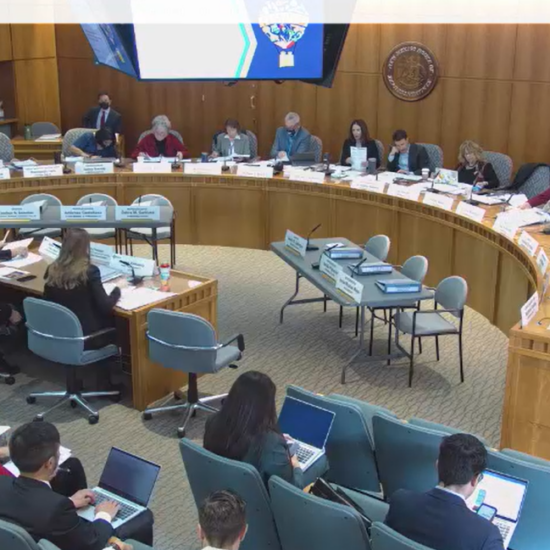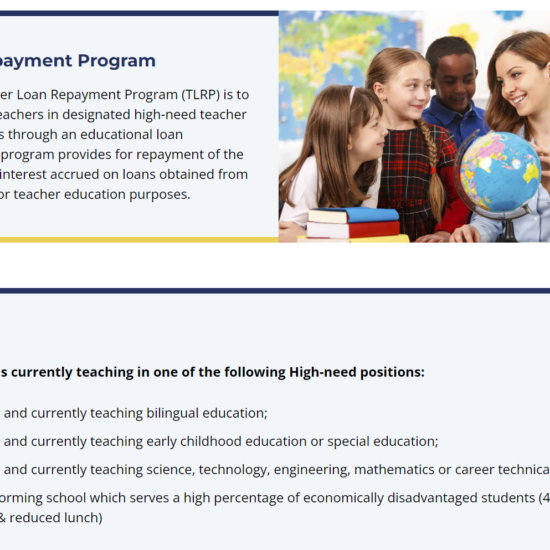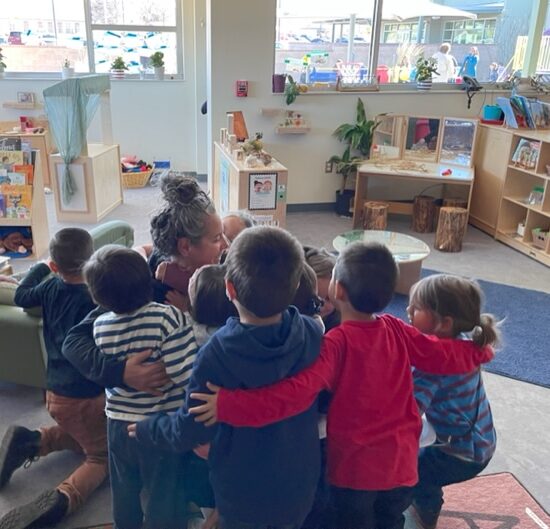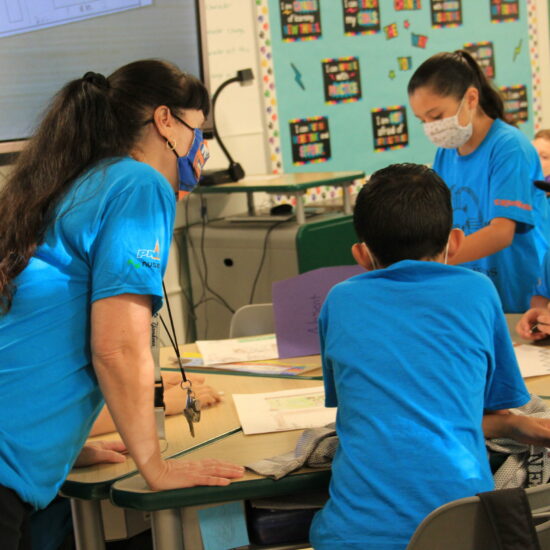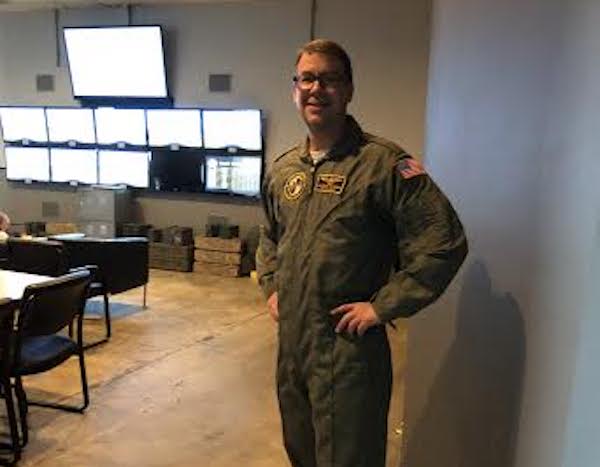
Full Name: Joel Hutchinson
Hometown: Española, NM
Current City: Las Cruces, NM
Grade(s)/Subject(s) Previously Taught: Pre-AP English II, AP Language & AP Literature
School and District: Centennial High School, Las Cruces Public Schools
Similar to my family, you’re a Norteño by nature. Share more about growing up in Española and what brought you to become a teacher.
My siblings and I were largely the only White students in classes growing up in the valley. I had some really great teachers there, but also some who would be rated ineffective. Poverty was prevalent for my family as well as the majority of the community, yet four of five in my family have received a Master’s degree or above. Those formative years are challenging to discuss as so many of my classmates in elementary and middle school were making decisions that had negative long-term effects on their lives. I work hard to reverse that trend in my classroom, my district, and at the state level.
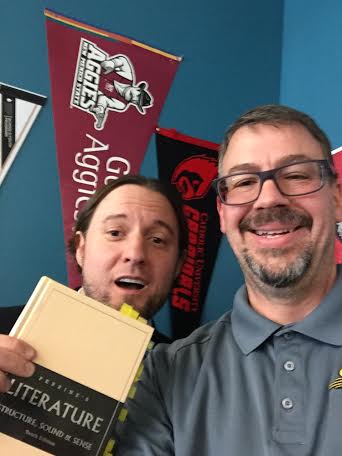
You penned an op-ed that touched on how you incorporate student learning data into your practice. What brought you to write that piece and what was the reaction like?
I am troubled by people that disregard data and accountability. This is not to say they are one and the same, however as a teacher you have to see how your students are progressing academically and what needs adjustment. The reaction was positive from most of the people I know, and I had highly opinionated responses by those that believe the data is skewed and inconsistent. The data collection is not perfect, but knowing how my students are doing is essential in how I help them grow as learners.
What are some of the similarities and differences you’ve seen between Española up north and Las Cruces down south? What stands out?
I will adjust this question to: “How did high school at Goddard HS in Roswell differ from my early childhood education?” In Española I had some great teachers that differentiated instruction, but the overall expectations for student success were lower than when we moved to Roswell. I was a top student in EVMS and rarely studied, which became my downfall when I took high school courses and then in college. I never really learned how to deal with time management and effective ways to study until I figured some of those out in the military and from my eventual wife, who grew up in Los Alamos and had a vastly different educational experience.

You lead a couple of Advanced Placement (AP) courses at Centennial High School. For those who might be unfamiliar, what is AP and why is it important?
Advanced Placement is a high school course that also allows for students to take an exam in May (talk about high stakes) for college credit. The classes are rigorous and statistics show that students who take these courses, even if they don’t pass the exam, do considerably better in college than students who do not. I started teaching and thought I was pretty good until I started working on my Master’s, then realized I knew nothing. After attaining my Master’s, I, again, thought I was pretty good. I then attended AP institutes and again realized I had so much to learn. AP training and skills have helped me immeasurably in improving my craft as a teacher, and as a result has paid great dividends for my students. The high demands of reading, writing, and critical thinking in AP English courses are the level of expectations we should have for all students, not just the students who are “good” at school. These expectations and demands are what we have for extra-curricular activities, so why do we not have the same academically?
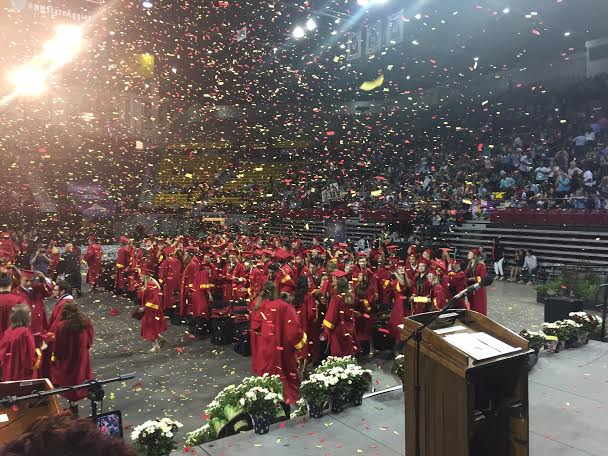
As someone who grew up playing sports, what are some of the overlaps and correlations you see between athletic and academic pursuits in schools?
Unfortunately in our world today the “student-athlete” is largely focused on the right side of that dash. The balance is focused on opportunities for college through athletic scholarships instead of academic. If students and families in New Mexico invested the amount of time in academics like they do in athletics our state educational system would be considerably stronger. It used to be that a season lasted on average three months, however today, with club level teams and travel, it has shifted to year-round and has thrown the balance of student-athlete out of proportion. Unfortunately the pyramid scheme of becoming a professional athlete and the big money outweigh the reality for the vast majority of our student-athletes. We have very few athletes like Alex Bregman or Brian Urlacher in New Mexico, as they are generational players. How many others have lost opportunities to advance educationally due to misguided athletic pursuits?
You’re a proud military veteran. Tell us more about that and what brought you to that work. How has being a veteran impacted your education paradigm and approach?
In high school I was going to be one of those professional athletes, and flunked out of college. Fortunately, I played for team Uncle Sam for four years in the USAF and developed the discipline and confidence I lacked in my first college attempt. I was not going to be successful in college out of high school, but had great experiences while in the Air Force that reshaped who I was and how I thought. I lived in England for two years, before spending time in Germany, Japan, and finishing my tour at Norton Air Force base in San Bernardino, California. The 0.0 GPA of my first college attempt shifted to the upper 3 range when I graduated in 1997. Clearly I had the intellectual capacity, but there is so much more to being a successful student. These include discipline and confidence, which team sports profess to build, don’t translate from the playing surface to the academic classroom. This has largely shaped my approach to teaching. I coach reading, writing, and critical thinking. Sometimes you have to tear apart all that you know to build the new you.
This is an extremely controversial topic: who makes the best New Mexican cuisine, Northern or Southern New Mexico?
As controversy seems to be an integral part of being a citizen of our great country today, I will have to side with Southern New Mexico. I live down here! And I will also commit to green over red!


